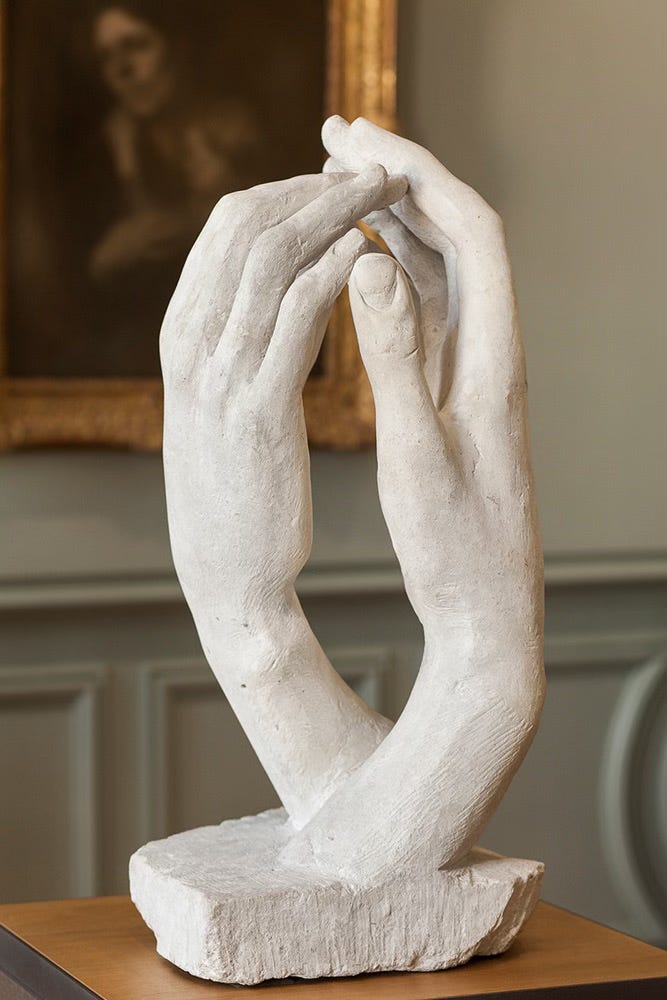
Your great mistake is to act the drama as if you were alone. As if life were a progressive and cunning crime with no witness to the tiny hidden transgressions. To feel abandoned is to deny the intimacy of your surroundings. –David Whyte, “Everything is Waiting for You”
On a slushy, miserable Monday in February, I rolled out of bed and slumped into the kitchen and then heard something at complete odds with the cruel grey of the coming day: chickadee song. Chicka-dee-dee-dee! This morning the song was surprising most of all because its source was the laundry room that lay between the kitchen and the back porch. Before I could investigate further, my friend Rayna burst through the door, birdsong still spiraling from her lips. A broad smile underscored her bright eyes, and I remembered that Rayna had learned to whistle like a bird so that her sisters could find her if they got lost in the grocery store. But today, she was just speaking with the birds.
With her bright red hair pulled into pigtails, she explained that chickadees have one of the most complex sonic vocabularies of any bird and can communicate the presence of a predator or draw in a lover. The apprehension that had gripped me moments earlier began to wash away, and Rayna, with a twinkle in her eye, giggled, “I don’t know what the chickadees think I’m saying, but the more I sing, the closer they get.” Indeed, I could still hear the not-so-distant calls of the birds she had summoned to the pathetic, grey trees that line the parking lot behind my house. If anything were joy, it would be this surprise that sliced like a bright knife through the thick grey morning with ease.
Rayna eventually had to speed off to class after we shared a steaming cup of chamomile tea, and I, not yet ready to face the day, retired to my dark, dusty room. As I folded, resigned, into the soft duvet of my bed, my eye caught a small, yellow, worn postcard hanging on my wall; I had gotten it seven years previous in Paris as a furrow-browed teenager. Two white hands of rough-hewn marble cup each other delicately, brightly set against a black velvet background, barely touching: Auguste Rodin’s La Cathédrale.
The postcard reminded me of my mother, of thick crêpes with béchamel and white asparagus by the Abbesses metro stop. Of limestone basilicas, graffiti-dappled alleys, and my brother’s mischievous grin. It also reminded me of my friend Julia—who had told me about this particular Rodin sculpture when she was a nanny in Paris—of her delicate hands that look small next to my big-knuckled mitts. Between our cupped hands, like the postcard attempts to portray, lies a sharp electricity, a love, a place for God to lie in. This hollow world between us is also a birdcall named joy.
In one final attempt to slough off my German class at noon, I laid down and closed my eyes, but almost immediately something bright and sharp pricked my attention: one of my favorite poems, David Whyte’s “Everything Is Waiting for You.” A bright fragment began to swirl up from my memory: “Put down the weight of your aloneness and ease into the / conversation.” Where else did my fear for the day spring from than my fear of monologue, of only encountering myself? And yet at every turn, in every room of my home, I found a conversation begging my response. The birds spoke and Rayna responded. Two hands became sacred in my sight.
Another line shimmered in my mind: “Alertness is the hidden discipline of familiarity.” Alertness is the hidden discipline of familiarity. It felt like the fluttering shreds of joy that I snagged out of the air over the course of the morning did not spawn from any particular source. They were always there, just waiting to be attended to. The morning felt as grey as it looked because my familiarity dulled my alertness to the whole world of things that sat waiting for my shifting gaze.
This knife we might name joy cut through the despair of the day, cleaving it into glittering crystal. It would be easy to assume this bright blade is sharpened by drab surroundings—in other words, that joy is experienced most poignantly when contrasted against suffering or darkness. But it would be a mistake to believe joy is earned: the knife, whether it cuts through stone or foam, is ever sharp. Even as it rests unused on the kitchen counter, its bright blade glistens beyond utility.
You lose something vital when you place joy behind the bars of deservedness, when, in Whyte’s words, you “act the drama / as if you were alone,” only earning the warm embrace of relationship with intense suffering. It is uncomfortable to consider that our access to joy does not lie at the end of the hero’s journey, but rather everywhere—even within our dark, dusty bedrooms.
To consider the knife’s immaculate sharpness, to hear the chickadees chatter, to see a cathedral between two carved hands: what brilliant slivers of everyday intimacy.





Went to Costa Rica with a bunch of bird watchers and for first time paid attention to bird calls and communication. This was lovely. I have a hard life in some ways and I tell those in my life who are incarcerated, depressed, or living on the streets, etc., "the birds are still singing."